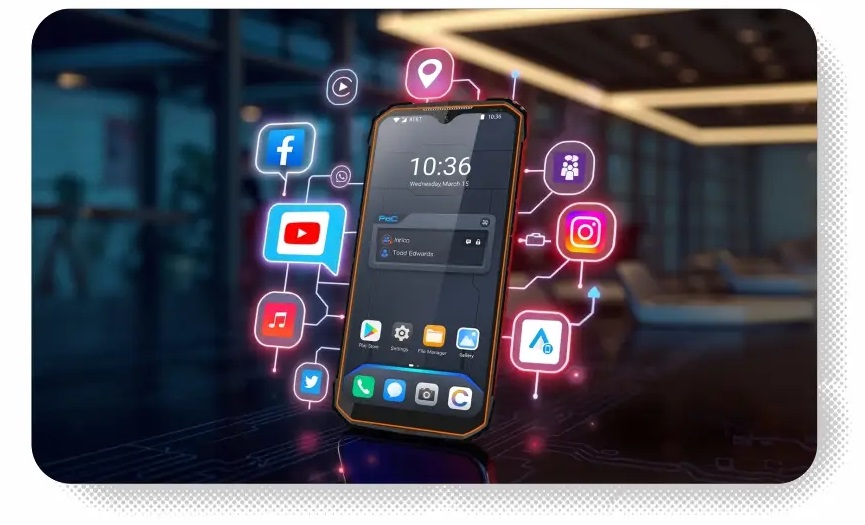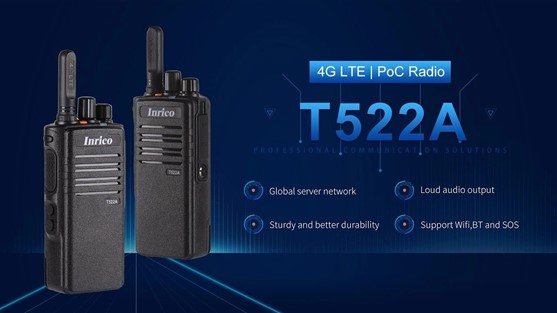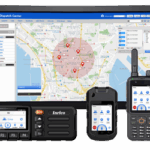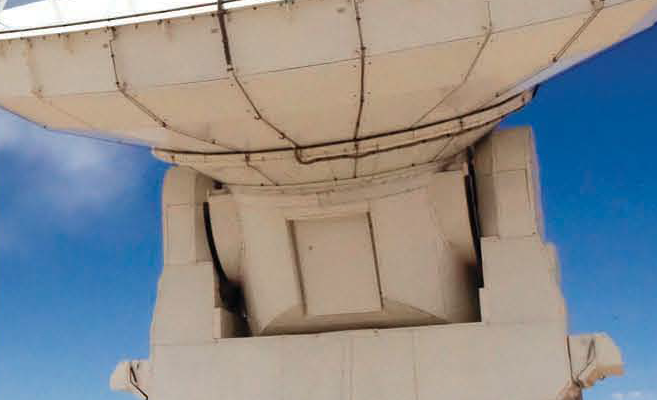Modern Wireless Communication: The Hidden Engine of Successful Hotels

Wireless communication has become the invisible backbone of successful hotel operations today. A revealing report found that a poor Wi-Fi experience influences 36% of business travelers’ decision on whether they rebook a specific hotel in the future. This statistic alone demonstrates why we cannot underestimate the critical role of wireless connectivity in the hospitality industry.
If you want to take a peek at one of the most popular wireless communication perfect for hotels, we recommend you read the blog about PoC Technology.
Indeed, with 79% of business customers returning to the same locations, wireless connectivity plays a key role in customer retention and acquisition. Across Saudi Arabia’s major cities like Riyadh, Jeddah, and Dammam, seamless and reliable wireless connectivity has become a bare minimum expectation for hotel guests, conference attendees, and visitors. The adoption of this technology means that the barriers of time and space that once hindered seamless communication are now a thing of the past.
Furthermore, the integration of wireless communication into the hospitality industry has opened up avenues for innovation, from mobile check-ins to real-time updates on housekeeping status. Staff members equipped with wireless devices can communicate and coordinate tasks on the go, reducing response times to guest requests and streamlining service delivery. Consequently, the better the staff can communicate with each other, the smoother the operations will be, ultimately driving that all-important guest satisfaction.
How Wireless Communication Streamlines Hotel Operations
In the hospitality sector, effective wireless solutions create a competitive edge by enhancing operational efficiency. Hotels implementing wireless networks report significant improvements in staff mobility and productivity as employees connect from anywhere on the property. This mobility proves especially valuable in large resorts where staff coordination across multiple buildings previously required physical movement.
The financial impact is substantial; smart hotels using advanced wireless technology can reduce energy costs by up to 30% through automated systems. Additionally, predictive maintenance enabled by IoT sensors minimizes downtime and repair expenses, ensuring continuous operations.
Real-time communication transforms departmental coordination. When a guest requests service, wireless systems allow immediate staff notification without delays. For instance, chefs can instantly alert servers when meals are ready, ensuring food arrives fresh and hot. Similarly, maintenance teams receive work orders digitally, eliminating paperwork and reducing resolution times.
Security operations benefit substantially through real-time monitoring via HD surveillance systems and IoT sensors that detect unusual activity and immediately alert personnel. During emergencies like fire alarms or medical issues, wireless communication enables staff to coordinate evacuations and keep guests informed without creating panic.
Overall, wireless technology creates a seamless operational environment where back-of-house teams function efficiently while maintaining high service standards—ultimately translating to enhanced guest experiences and increased profitability.
Key Wireless Technologies Used in Hotels
Modern hotels rely on several key wireless technologies to maintain seamless operations. Push-to-Talk (PTT) over Wi-Fi stands out as a cost-effective solution that leverages existing Wi-Fi infrastructure, eliminating the need for dedicated radio equipment. This technology enables instant group voice and video calls throughout hotel properties, making it ideal for large buildings and multiple locations.
Two-way radios remain fundamental in hotel communication, primarily used by housekeeping, security, guest services, and management teams. UHF licensed radios offer superior performance in multi-story hotels due to their ability to penetrate concrete and steel structures. These devices provide property-wide communication at the touch of a button and support multiple channels for department-specific communications.
DECT technology delivers infinite wireless coverage throughout hotels with significant benefits for staff mobility. The implementation of DECT telephony has been shown to improve response times and guest satisfaction across properties in Riyadh, Jeddah, and Dammam.
Specialized devices like Smartbadge and Minibadge offer hands-free communication capabilities. These lightweight, wearable solutions combine communication, work-order management, and emergency features in one device. Moreover, PoC (Push-to-Talk over Cellular) technology extends communication beyond property boundaries by utilizing cellular networks, allowing nationwide connectivity without FCC licensing requirements.
Modern wireless solutions also feature integration capabilities with existing hotel systems, including PBX, ticketing, customer relationship management, and property management systems.
Adoption of Wireless Communication in Saudi Arabia’s Hospitality Sector
Saudi Arabia’s hotel industry has rapidly embraced wireless communication technologies in recent years. The country’s Vision 2030 initiative has primarily accelerated this trend, pushing hospitality establishments to modernize their infrastructure.
Throughout Riyadh, Jeddah, and Dammam, luxury hotels have been early adopters, though mid-range properties are now catching up. These establishments increasingly implement sophisticated systems that connect staff across departments while enhancing guest experiences.
Nevertheless, adoption rates vary significantly between regions. Riyadh, as the business hub, shows the highest implementation rate of enterprise-grade wireless networks. Jeddah hotels, catering to religious tourism, focus on high-capacity systems capable of handling seasonal visitor surges. Meanwhile, Dammam properties often emphasize industrial and business traveler requirements.
Several factors drive this technological shift:
Rising customer expectations for seamless connectivity
Growing competition among hotel chains
Need for operational efficiency in a challenging economic climate
Government initiatives promoting digital transformation
Although implementation costs initially deterred some properties, the long-term operational benefits have convinced most hoteliers. Essentially, wireless communication has become a standard rather than a luxury in Saudi Arabia’s competitive hospitality landscape.
The kingdom’s unique requirements—including multi-language support and cultural considerations—have certainly shaped how these technologies are configured and deployed across properties, creating distinctive implementations compared to other markets.
Conclusion
Wireless communication technology undoubtedly serves as a critical differentiator in today’s competitive hospitality landscape. Throughout this article, we have seen how these technologies transform hotel operations across Saudi Arabia, particularly in cities like Riyadh, Jeddah, and Dammam. The statistics speak for themselves – with 36% of business travelers basing rebooking decisions on Wi-Fi quality and 79% returning to locations with satisfactory connectivity.
Hotels adopting comprehensive wireless solutions experience tangible benefits, specifically through reduced energy costs, streamlined maintenance, and enhanced security operations. Push-to-Talk over Wi-Fi, two-way radios, DECT technology, and specialized wearable devices now form the backbone of effective hotel communication systems. These technologies allow staff to respond quickly to guest needs, coordinate tasks efficiently, and maintain high service standards.
Saudi Arabia’s Vision 2030 has accelerated this technological transformation, though adoption rates still vary between regions and property types. The initial implementation costs often become insignificant when weighed against the long-term operational benefits and increased guest satisfaction.
Wireless connectivity no longer qualifies as a luxury but rather a necessity for hotels aiming to thrive in Saudi Arabia’s demanding hospitality environment. For properties still navigating this technological transition, we recommend you consult Abdulrahman Alshareef group for your best communication solution for your hotel. Our expertise can help tailor systems to your specific needs, ensuring seamless operations while addressing the unique requirements of Saudi Arabia’s hospitality sector.
The future of hotel operations will certainly continue to evolve alongside wireless technology advancements. Hotels that embrace these innovations now position themselves at the forefront of guest service excellence, operational efficiency, and ultimately, business success in the competitive Saudi Arabian market.
You can visit our website alshareefgroup.com for more information.










